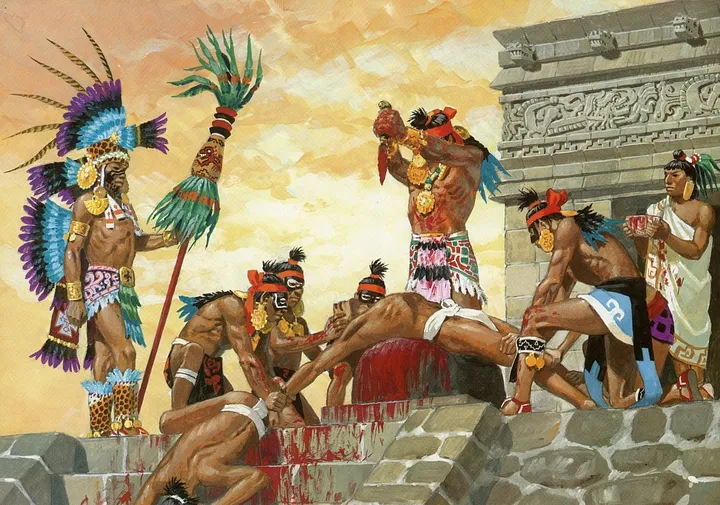(Following from yesterday's post.)
When I speak of religion as a cornerstone institution, I am not talking about temples and priesthoods. I am talking about mythology.
To quote author Brian Niemeier, who is far better about explaining religion than I am:
First, let’s define our terms. To qualify as a religion, a group must have three elements:
- Cult: a consistent body of rituals for public worship
- Code: a set of moral rules
- Creed: a canon of shared myths that defines a shared identity
I’ll add a further criterion introduced by reader D.J. Schreffler. A religion offers adherents explanations for their past, present, and future.
- The origin story–this is part of the creed.
- Ritual laws for the here and now–see cult and creed above.
- Eschatology–the final chapter of the creed.
Action That Lasts Has A Foundation Imperisable
Religion comes first because it is how a people explains itself to itself. One or more cosmic powers came into a Material Plane, intervened therein, and become core figures in how that mortal people believe things to be. Peoples act on their beliefs.
You may find this a weird order for things to be considered, given my stance that Advanced Dungeons & Dragons 1st Edition is a wargame. This is where I remind you that wars do not happen without reason; wars are actions, actions are done due to beliefs held by the actors, and--when you get deep into the inquiry thereof--you will find religion EVERY.SINGLE. TIME!
This also applies to campaigns that are war in all but name. Why do the Dwarves live, strive, and organize as they do? Because their gods and heroes, by way of the stories that comprise their myths, explain to the Dwarves who the Dwarves are, how they came to be, what their place in the world is, and what is and is not theirs to have and do- and why all of this is so.
You can say the same for the Elves, Gnomes, Halflings, and Men also. Commercial setting designers, despite a lack of formal training or education on religion, are nonetheless able to recognize this fact because such mythologies are part-and-parcel to the material published. The cosmology, and therefore religions, of the Realms is not that of Greyhawk or any other milieu.
It is when a people's myths fracture in their understanding that a people fractures into multiple successors; again, this is recognized by the differing mythologies in alternate demi-humans (e.g. Drow for Elves, Duregar for Dwarves) and can even go so far as to change what Classes arise therein (e.g. Oriental Adventures).
Mythology--religion--is the root of culture. Culture is the frame by which what is or is not considered possible, probably, or desirable is set. Culture, therefore, frames what political activity is permissable or desirable- and all forms of campaigning IS POLITICAL ACTIVITY.
So What's That Got To Do With Me?

A campaign's factions may talk of gold, loot, and temporal power. That's a matter of logistics. The motivation for seeking such out, on the other hand, comes from beliefs that arise from mythology. (See the linked post above; as I said, "religion" does not mean "The Church".)
Pursuing a campaign to (re)conquer the land, or to make good a claim to an open throne, or to establish oneself as the merchant-emperor upon whom all must bow because he alone holds the Money Power- these are all religious motivations.
Such things prompt Causes For Action that spark these campaigns into being and pursue them until that flame has burnt out or been snuffed out by opposition.
Allow me to illustrate (pic related):
"Why are these raiders taking all these slaves?" "Someone's paying gold for them." "What do they want with slaves?" "To sacrifice them to their god in return for power."
Factions are going to act on their beliefs. Individuals are also going to act on their beliefs. Religion informs what those beliefs are, and cosmic powers are the parties by which religions are created and through which they make their influence, presence, and power felt in a manner mortals can comprehend.
One of the consequences of a religion is in how the god(s) behind it make use of it. That means we're now taking the next step down, to formal institutional power, and that is for tomorrow.
The headwaters of culture are race and geography. But I get what you're saying here, and it's mostly true.
ReplyDelete